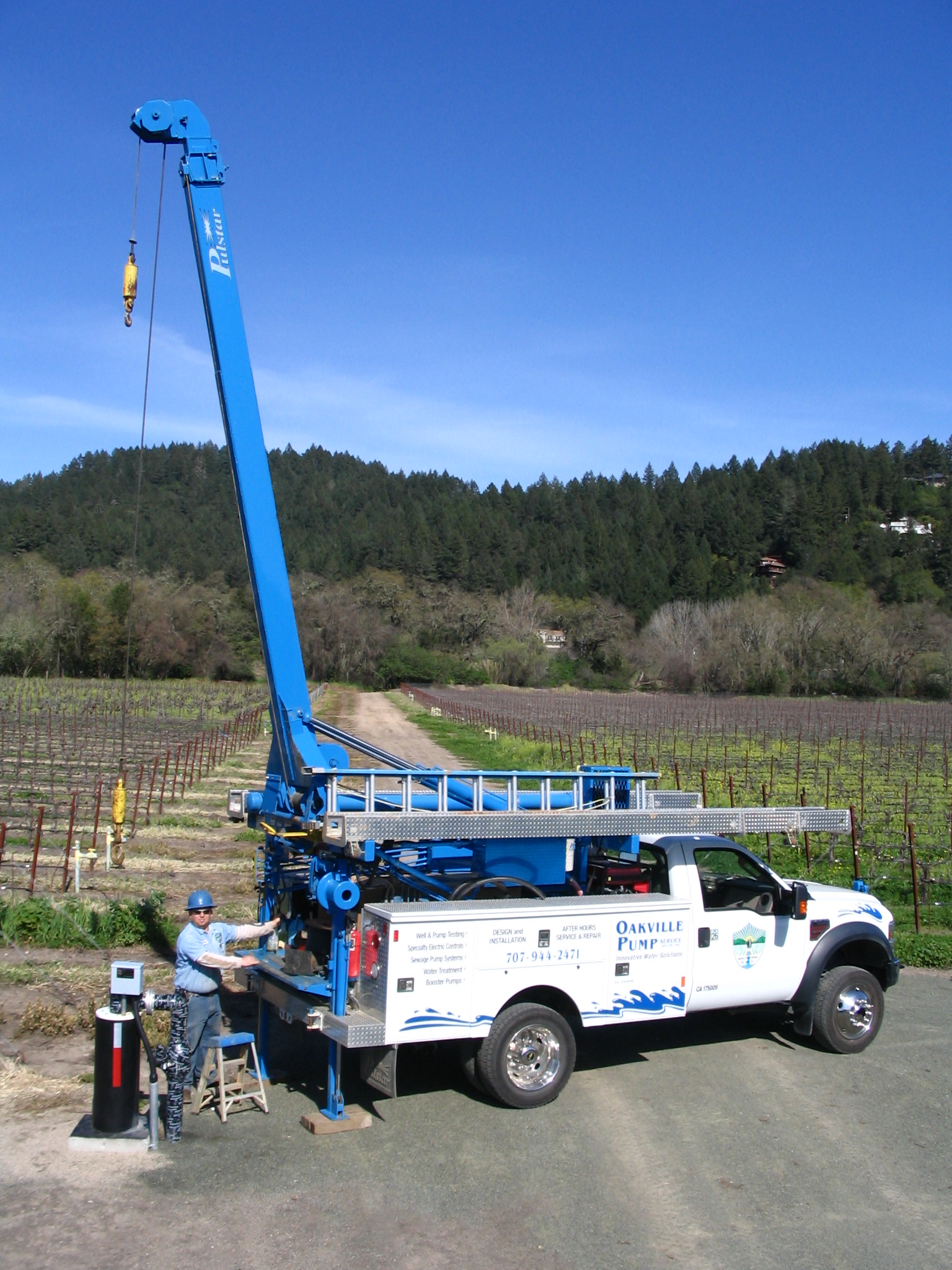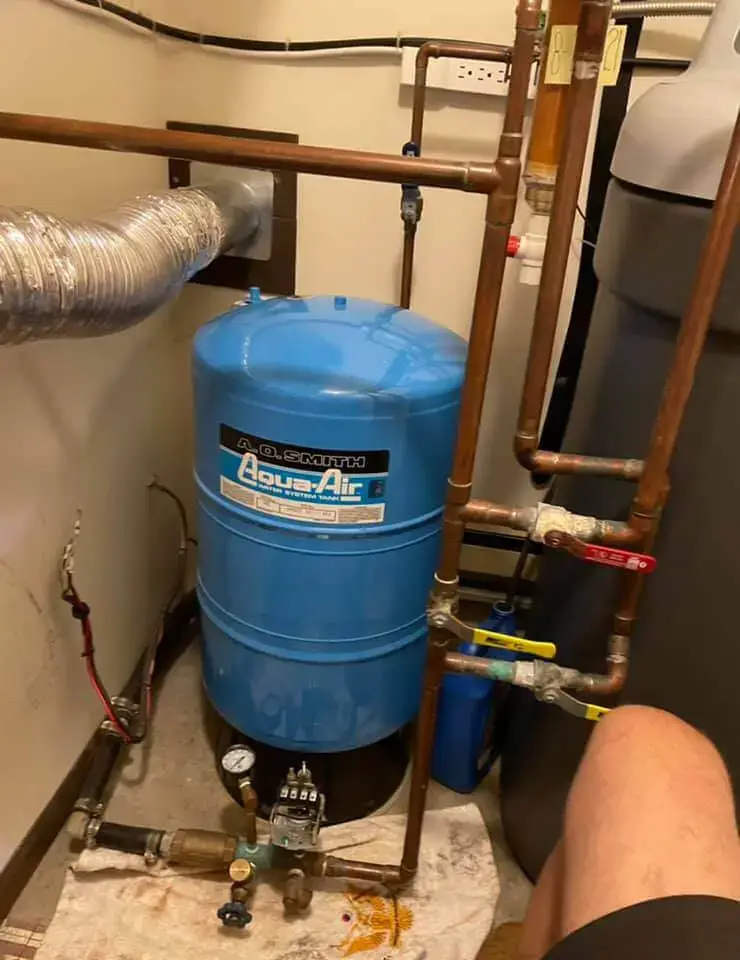Comprehending the Trick Elements of Effective Water Purification Solutions

Importance of Water Purification Equipment
Water filtering systems play an important role in ensuring accessibility to secure and tidy drinking water by effectively getting rid of impurities and pollutants. These systems are necessary in dealing with the growing problems over water top quality and the potential wellness threats related to consuming infected water. By utilizing numerous filtering devices such as reverse osmosis, triggered carbon, and UV sterilization, water filtering systems can efficiently remove dangerous substances like germs, viruses, hefty metals, and chemicals from the water.
Furthermore, water purification systems assist to boost the preference and odor of water by removing chlorine, sediments, and various other toxins that can impact its top quality. Well Pump Replacement. This enhancement in water high quality not just makes it much more palatable however additionally encourages individuals to consume alcohol an adequate quantity of water daily, promoting better hydration and general wellness
Sorts Of Purification Elements

Physical filters are designed to physically stress out contaminations from the water. These filters can be made of materials like ceramic, carbon, or also sand, and they function by capturing particles bigger than the filter's pores as water goes through.
Chemical filters use various chemical processes to eliminate impurities from the water. Instances include activated carbon filters, which adsorb pollutants, and reverse osmosis membrane layers, which make use of stress to separate impurities from the water.
Organic filters make use of living microorganisms like bacteria or algae to break down raw material and pollutants in the water. These filters are commonly made use of in wastewater therapy plants or all-natural water purification systems.
Comprehending the various kinds of filtering parts is critical for picking the most appropriate water filtering system for certain filtration requirements.
Feature of Sediment Filters
Sediment filters play an important function in water filtering systems by efficiently catching solid bits put on hold in the water. These filters are typically the initial line of protection in a purification system, eliminating larger particles such as sand, silt, dirt, and corrosion prior to the water moves through finer filtering phases. By trapping these debris, the filters avoid them from reaching downstream components, thus expanding the life-span and effectiveness of the entire system.
Ignoring this maintenance can lead to blocking, lowered water flow, and endangered filtration effectiveness. Overall, sediment filters are indispensable components that add substantially to the effectiveness of water purification systems.
Duty of Activated Carbon Filters
Playing a vital duty in water purification systems, activated carbon filters contribute in eliminating impurities and impurities from the supply of water. These filters are made to adsorb and trap a visit the site large range of pollutants, including chlorine, unstable natural substances (VOCs), chemicals, and herbicides. The activated carbon material has a big surface, permitting for the reliable trapping of contaminants with a process called adsorption. As water goes through the filter, the turned on carbon holds and attracts onto the impurities, guaranteeing that the water that appears beyond is cleaner and more secure for intake.
Turned on carbon filters are very efficient at improving the preference and odor of water by lowering chemicals that can impact its quality. Due to their versatility and integrity, activated carbon filters are a key part in guaranteeing that water is detoxified to the greatest standards prior to reaching customers.
Understanding Reverse Osmosis Equipments
Reverse osmosis systems are sophisticated water filtering systems that utilize an advanced procedure to get rid of impurities and impurities from drinking water. These systems work by applying pressure to the water, requiring it with a semi-permeable membrane.
One secret advantage of reverse osmosis systems is their capacity to eliminate a vast important source array of contaminants, including hefty steels, liquified solids, viruses, and microorganisms. This makes them extremely efficient in enhancing the total top quality and safety and security of drinking water. Additionally, reverse osmosis systems are relatively low-maintenance and can be set up under the sink or in a main purification system, giving hassle-free accessibility to tidy water throughout the house. Overall, understanding how reverse osmosis systems work can help individuals make informed decisions about their water filtration needs.
Verdict
To conclude, reliable water filtering systems are critical for making certain safe and tidy alcohol consumption water. The key components of these systems consist of sediment filters, activated carbon filters, and turn around osmosis systems. By comprehending the function and duty of each element, individuals can make enlightened choices when selecting a water purification system. It is very important to prioritize the quality of water in order to advertise total health and health.
Water purification systems play a critical function in ensuring access to tidy and safe drinking water by successfully getting rid of pollutants and impurities. By utilizing different filtration systems such as reverse osmosis, turned on carbon, and UV sterilization, water filtering useful reference systems can successfully eliminate dangerous materials like bacteria, viruses, hefty metals, and chemicals from the water supply.
Sediment filters play an important function in water filtration systems by properly capturing solid bits put on hold in the water (Water Treatment).Playing a crucial role in water filtering systems, triggered carbon filters are crucial in removing impurities and impurities from the water supply.Reverse osmosis systems are advanced water filtering systems that utilize an innovative procedure to get rid of impurities and impurities from drinking water